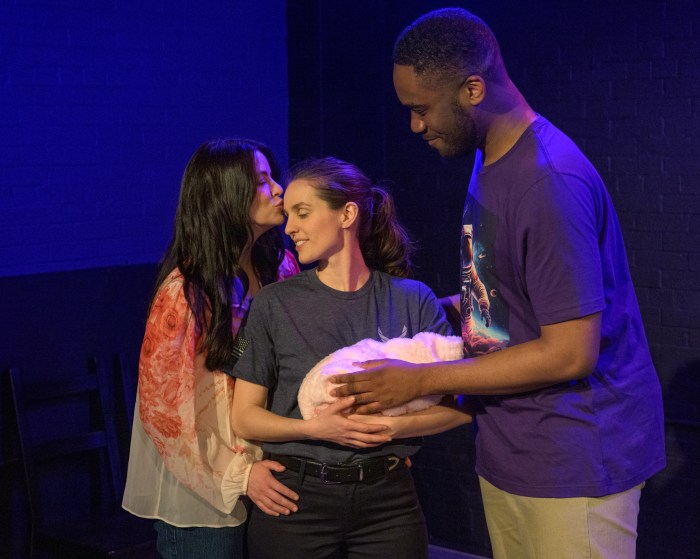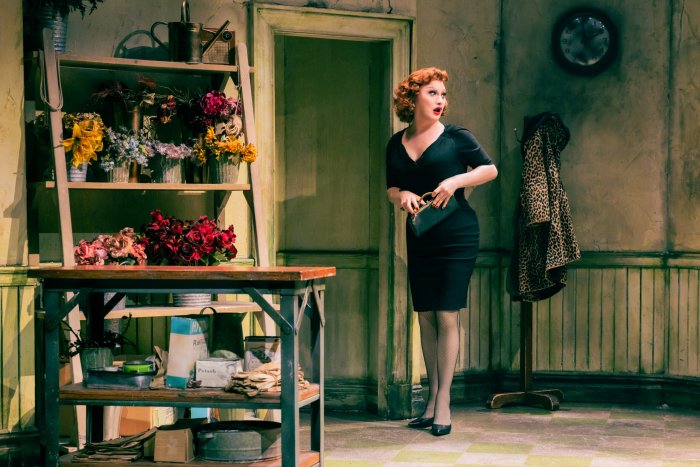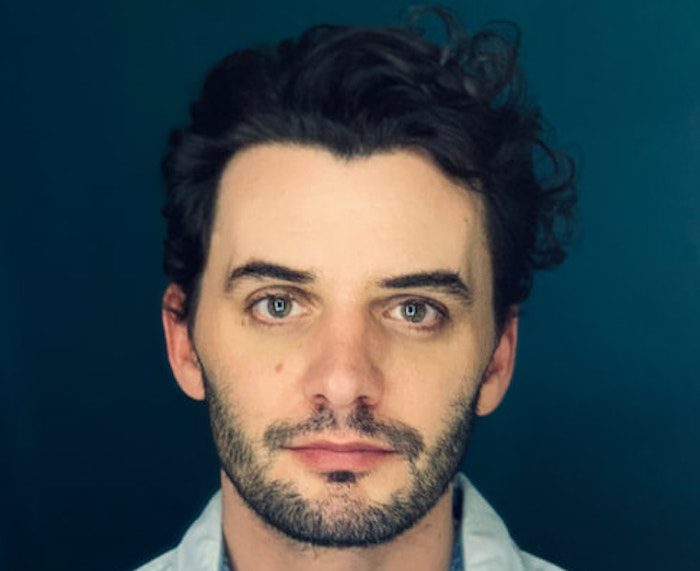“Joker” playwright Yilong Liu. | XUE LI
BY DAVID NOH | What inspired Yilong Liu to write “Joker?”
“I’m interested in Asian American and LGBTQ stories, especially gay Asian stories, either in the states or in the Asia-Pacific Region,” the 25-year-old playwright said.
Coming to the 19th Annual New York International Fringe Festival for five performances beginning on Aug. 15, “Joker” is a new play by Liu. Written in 2013, it was inspired by the heated debate over marriage equality in Hawaii. Liu signed a petition card backing marriage, and then began to hearing from a pro-marriage group.
“Ever since then, volunteers have been calling me for my support,” Liu said. “I couldn’t help but wonder: what if a closeted and married gay man secretly signed a petition card then the phone calls got him into troubles? What if his wife or kids picked up the phone and found out he’s gay?”
The four-character play involves Joe, the manager of a Chinese restaurant in Honolulu, his wife Lin, and Joe’s stepson Ray. Things change when Frank, a former friend of Joe’s and reporter from the Philippines, arrives to cover marriage equality in Hawaii. His presence is deeply unsettling to Joe, especially as Frank knows a secret from his past, and he threatens to expose it. It is an emotionally complex play.
The play was also inspired by a fellow college student of Liu’s named Joker, who was from the Philippines.
“He didn’t want people to call him that, nor did he self-identify as Filipino,” Liu said. “He didn’t want to speak Filipino in front of us and he pretended he didn’t understand any. I found these characteristics so intriguing and full of story potentials, so I started writing this story.”
Liu wrote “Joker” for a playwriting class, and it later became his Masters’ thesis play. It was fully produced in December 2014 at Earle Ernst Lab Theatre at the University of Hawai’i. Following Fringe, it is scheduled for a one-month run at Kumu Kahua Theatre in Honolulu.
Liu was born and raised in China. He moved to Hawaii to pursue his MFA. In China, he authored “short novels and screenplays.” He finds his “identity label” empowering.
“It gives you a unique perspective to represent and give voice to your group, but meanwhile it could also be limiting,” he said. He is also confronted with a theater community in New York in which he is often not just the only Asian in the room, he’s the only person of color in the room.
“It’s funny because I had a week of culture shock, which I didn’t experience when I moved to Honolulu three years ago,” Liu said. “I attended two meetings/readings of a gay playwrights’ collective in [New York City]. Both times I was the only Asian in the audience, the only Asian playwright, and there were no Asian gay characters in the stories. From Honolulu to New York, I am supposed to be exposed to greater diversity, yet the fact that gay Asian experiences are underrepresented on stage is ironically more striking to me.”
“Joker” is also very much a play about being gay in Hawaii, which is a kind of a conundrum. It is, on the one hand, the virtual birthplace of marriage equality and, on the other, has sparsely attended Pride events. There is also a lot of closeted-ness, with so many Asians coming from conservative religious backgrounds, as well as the demanding economic situation there, with many still living at home, well into adulthood.
“I think that’s the charm of Hawaii,” Liu said. “Gay guys are allowed to make decisions they are comfortable with and not have to worry about stuff like peer pressure. I have openly gay friends, and also closeted friends. They get along with each other very well.”
Actor Ariel Estrada, who plays Joe, joined the cast on the recommendation of playwright Zhu Yi, who is a member of the Youngblood program at Ensemble Studio Theater.
“‘Joker’ asks difficult questions about the nature of love and devotion, set on the eve of marriage equality in Hawaii,” Estrada said. “It also explores the contemporary Chinese and Filipino immigrant experience, and how that experience intersects with the struggle for LGBT equality.”
Joe is a “wonderful character” who is “ruthlessly loving and devoted toward his family, with all the unhealthiness that that description might imply. His carefully constructed world is falling apart in this play, and he is fighting desperately to stop that from happening,” Estrada said.
UPDATE: Due to an editing error, some text in this story was incorrectly attributed to Yilong Liu. They were the author's views, not Liu's. Gay City News regrets the error. The text has been corrected.


































